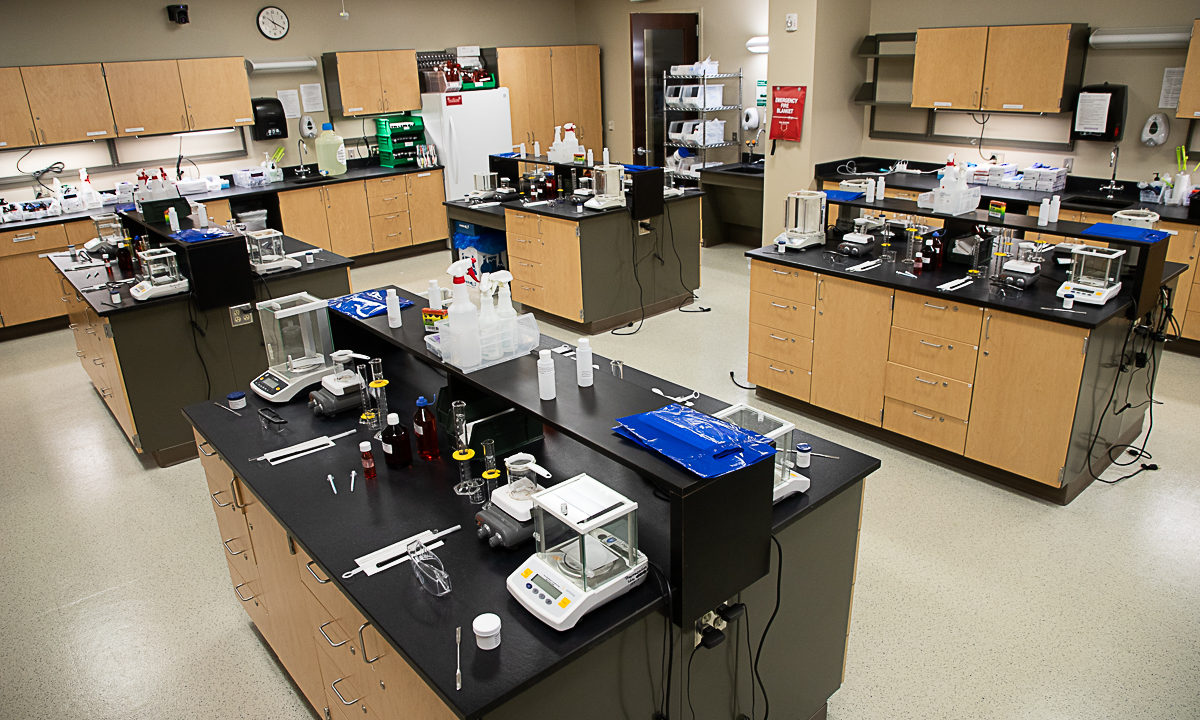
“What are you planning to do after you graduate?” This can be a daunting question for science graduates. Here are just a few possible answers.
By Kelsey Shea Bohl, PhD
“What are you planning to do after you graduate?”
This question, while typically well-intended, plagues folks who choose one of the “classic” majors: chemistry, music, biology, art. While it’s assumed that students majoring in education will spend their careers in the classroom, the endpoint is often less obvious for those pursuing a degree in one of the primary liberal arts fields.
What can you possibly do with THAT? people wonder with concern when you tell them that you are majoring in chemistry, thinking that you are about to spend tens of thousands of dollars to stuff your brain full of information that is antiquated or inapplicable to a productive modern society. Concerned relatives would breathe a not-so-subtle sigh of relief if you told them you’d chosen to pursue a degree in business or in nursing.
Don’t get me wrong, these are wonderful degrees, and CUW has solid programs in each of these arenas. But what about those other majors? Are they just knowledge for the sake of knowledge? Or can you actually do something with a degree like chemistry? As it turns out, there are lots of job opportunities available for individuals who have earned a bachelor’s degree in chemistry.
While many of these careers are less visible than, say, teaching or nursing, they tend to be well-paying and are directly dependent on knowledge gained and skills developed in the coursework of a chemistry major. My goal in writing this article is to introduce you to a few such careers.
Research Laboratory Technician
Research technicians serve as support staff for research laboratories, whether this be at educational institutions, biotechnology startups, or pharmaceutical companies. The goal of the research varies widely from lab to lab, but the work of a technician is fundamentally the same.
Typically, technicians prepare common reagents for global use by lab members, make specific chemicals for use in unique experiments, or help supervise the progress of a reaction or experiment for a graduate student or senior research staff member. Techs also may be placed in charge of maintaining safe chemical storage and coordinating the disposal of hazardous waste. Others may supervise the upkeep of laboratory instrumentation.
Some business and administrative skills can also come in handy, as labs often involve technicians in supply ordering and chemical inventory management. In some laboratories, a technician will even receive his or her own research project.
Regardless of whether a lab is trying to develop a new drug to treat Alzheimer’s disease, better understand the biochemical changes underlying clinical depression, or simply determine how a newly discovered enzyme works, chances are the technicians are the heartbeat of the operation, helping keep the lab running smoothly from one day to the next.
Medical Laboratory Technician
Most adults visit the doctor at least once a year, and sometimes these visits involve “labs,” ordered to ensure we are consuming the proper balance of macronutrients, or that a medication we are taking is working the way it is supposed to work. After visiting with his or her doctor, the patient stops at the lab, gets blood drawn, and then, usually within a matter of hours, test results show up in a personal health portal.
But what happens between the needle stick and the notification that LDL cholesterol levels fall within the normal range? A medical laboratory technician has obtained the patient’s blood sample, processed it, and analyzed amounts of specific components of interest using a series of chemical reactions and laboratory instruments.
Despite high levels of automation involved in medicine these days, providers still depend on highly trained individuals to carefully perform clinical diagnostic experiments and provide trustworthy health information to patients.
Industrial Product Analysis & Quality Control
When I’m not in the classroom, I’m most likely spending time at home with my one-year-old daughter and yellow Labrador retriever. With this entropic combination, you can probably imagine that I find myself opening my cabinets and pulling out a spray bottle of all-purpose cleaner more than a few times a week. I do this so often that I rarely stop to ponder what is in that container of cleaning solution.
However, if you think for a moment, that seems a rather important detail, doesn’t it? I have a feeling that I’m not the only one who takes it as a given that the contents of the products that we bring into our homes are exactly as the label describes. Consumers are given a long list of chemical names to define the contents of a product, and active ingredients are provided with a high degree of mathematical precision.
There are 325 mg of aspirin in a tablet. The active ingredient in my daughter’s baby sunscreen is 20% zinc oxide. How do companies come up with these numbers? And how do they guarantee that the contents of their products match what’s on the label to a degree that can guarantee consumer safety? This critical task typically depends on a quality control analytical chemist. These chemists have a well-developed understanding of how to detect and quantify different substances of interest in products, as well as identify the presence of unwanted byproducts.
Analytical chemists are specialized in the use of sophisticated laboratory instrumentation, as well as the interpretation of the data that these instruments provide. It is their expertise that ultimately informs and protects the public when it comes to the products that we purchase and consume.
Forensic/Crime Lab Analyst
True Crime has become a societal obsession over the last decade. The recent news is full of stories of decades-old cases being solved with new developments in forensic technology. And who among us hasn’t watched at least one episode of “Dateline”?
Identifying a murderer via DNA left at the crime scene 35 years ago seems cool and perhaps mystifying, but it isn’t magic. Mostly, it’s a lot of chemistry. Detectives depend on skilled technicians to collect, preserve, and analyze biochemical evidence to help identify and convict criminals. The tools of the forensic trade largely consist of chemical reactions and instrumentation.
The collection of hard-to-detect fingerprints depends on the addition of chemicals that will specifically stick to oils but not anything else surrounding the print. Detection of low-visibility blood spatter involves a chemical that will only glow in the presence of a protein molecule found in human blood. Tracing a sample of DNA back to a specific person requires the analysis of the sequence of smaller chemical building blocks that make up the bigger biomolecule.
Biochemistry majors are particularly well-suited for a career in forensic science, as their undergraduate course work develops an understanding of the composition of critical biological molecules, how to detect them, quantify them, and analyze their composition. By the time a biochemistry major graduates, he or she will know the information required to make him or her a viable hire for a position in the crime lab.
Graduate School
Not for the faint of heart, but certainly for those craving to continue consuming chemistry curricula, some students choose to apply for either a master’s or doctoral program post-graduation. With a master’s degree, or, more often a PhD, a student can take any number of paths.
Those with an advanced or terminal degree in chemistry or biochemistry can serve as research scientists in labs at pharmaceutical companies, biotechnology companies, or teach chemistry at the collegiate level. Research scientists work alongside technicians, graduate students, and interns, to perform experiments with the purpose of better understanding scientific principles, identifying the origin of a disease, or developing and testing new drugs.
Those who wish to teach typically instruct both general chemistry courses, as well as upper-level chemistry classes in the individual’s area of specialty. Some folks with PhDs will go on to start research labs of their own, serving as a principal scientific investigator, or PI. Principal Investigators guide the type of research that is done under their supervision, provide advice and direction for experimentation, recruit graduate students and hire research staff, and write grants to fund the scientific work being done in their labs.
Regardless of the final career, completion of a Ph.D. in chemistry is completely dependent on knowledge built at the undergraduate level.
Knowledge is power
If you’ve read this far, you’ve probably noticed a few common themes: chemical reactions and laboratory instrumentation. There’s always some on-the-job training to be done, no matter the occupation. However, the professions highlighted above are jobs that depend on a strong background knowledge provided by a bachelor’s degree in chemistry.
Concordia offers a two-track chemistry major, a biochemistry major, and a chemistry minor. If any of these chemistry-dependent careers piqued your interest and you want to learn more, be sure to request a meeting with one of the chemistry faculty when you visit campus. We would love the chance to sit down and talk with you and your family because you can, indeed, do a lot of things with chemistry!
Want in?
Concordia University Wisconsin is a Lutheran higher education community committed to helping students develop in mind, body, and spirit for service to Christ in the Church and the world. In the Department of Physical Sciences, we’ll lead you to discover the complex details of God’s creation. Chemistry, biochemistry, pharmaceutical sciences, and physics are all housed in the Department of Physical Sciences, where our aim is to help you develop a thorough understanding of the world around you. Through rigorous coursework in the physical sciences, we will help prepare you for vocations in research, education, graduate studies, and much more.

Dr. Kelsey Shea Bohl is an adjunct professor of chemistry at Concordia University Wisconsin.